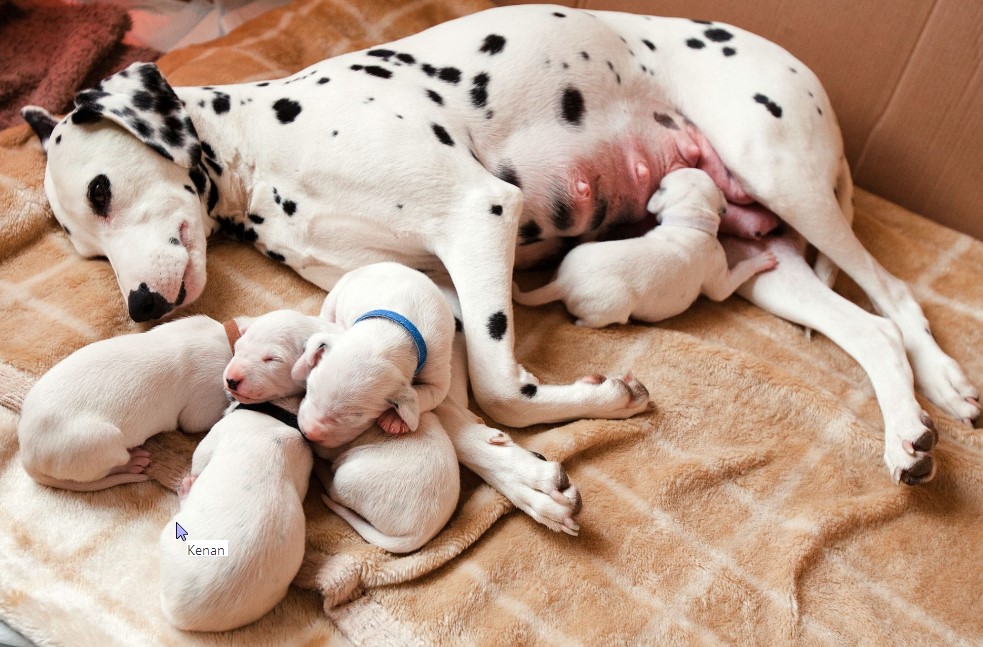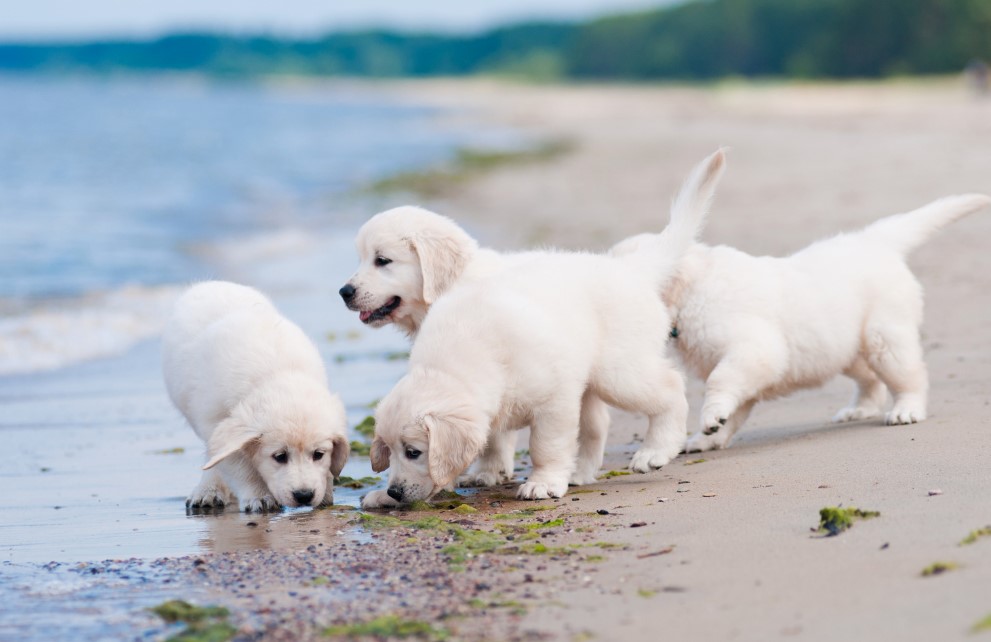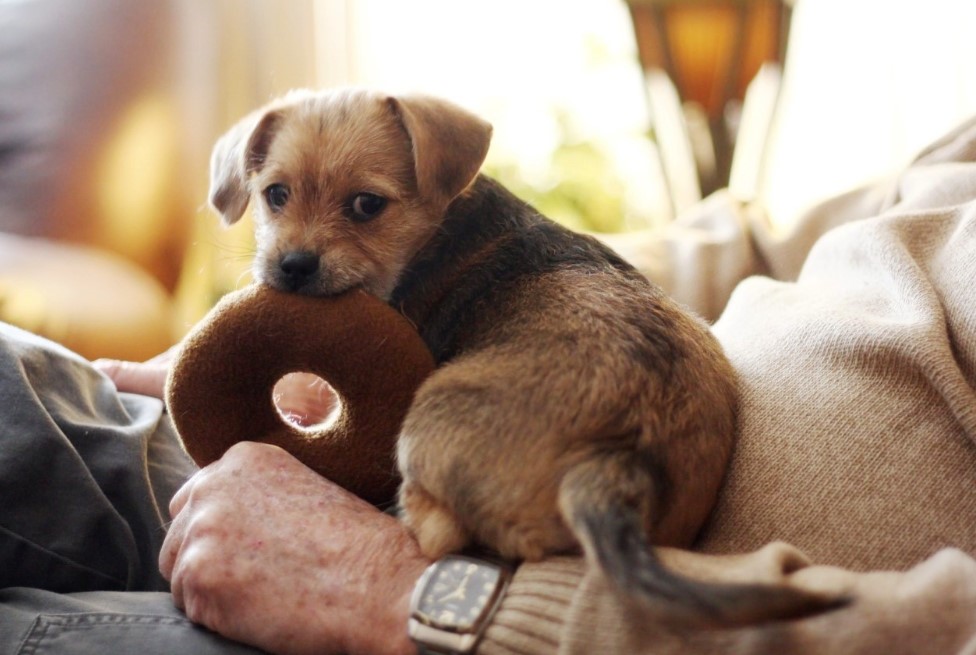How Should Puppies Be Fed? is a question you may have on your mind if you’re a new puppy owner. Whether you’re worried about over-feeding your puppy or just looking for a balanced meal for your pup, this article is for you. Follow the guidelines below for feeding your puppy at regular intervals. You can also use table scraps to supplement your puppy’s diet.
As your dog grows, her nutritional needs will change. Generally, most puppies do best with three meals a day until 6 months of age, then switching over to two meals a day. For toy- and small-breed dogs, four meals a day until 6 months, then three meals a day may be best. Ask your vet about a specific feeding schedule to ensure you’re meeting your dog’s unique needs.

Feeding a puppy
When feeding your new puppy, you should start by sticking to the food the breeder or reception center recommended. You can gradually increase the amount of new food over the next seven to 10 days, and gradually substitute the old food with the new. Your puppy may take a few days to adjust to eating dry food. However, once he or she is used to it, you should gradually reduce the amount of old food. However, you should not feed your puppy only dry food, as it may cause digestive problems.
Puppies should be nursed from their mother for about eight weeks of age. This is beneficial because mother’s milk contains antibodies that protect against certain diseases, such as diarrhea and pneumonia. Nevertheless, the mother may be unable to nurse the puppy due to some medical conditions or other reasons. If your puppy cannot nurse, you can give it a milk substitute. Make sure the milk substitute is room temperature or warm in a warm water bath before you start feeding your puppy.
Your puppy’s diet should contain proteins, fats, carbohydrates, vitamins and minerals. High- quality protein helps build strong muscles and healthy organs. Fats support the development of the brain, which helps with weight gain. Vitamins and minerals help strengthen bones and teeth. Puppies also require a good supply of water for hydration. Despite their tiny size, puppies can eat up to 10 grams of food every day.
Feeding a puppy at regular times
The best way to provide the necessary nutrients for a growing puppy is to feed it at a regular schedule. Most puppies require three or four meals per day, which can be adjusted as your puppy grows. The most important meal is breakfast, so make it at around 8 a.m. If you have a mixed breed dog, feed them every two to three hours. Puppies of large breeds may also require feeding every three to four hours.
It’s important to keep calcium and phosphorus ratios in your puppy’s diet at the lower end of the recommended range. Other important nutrients for healthy bone development include vitamin D and copper, and zinc. Finally, your puppy needs to get the right amount of omega-3 and omega- 6 fatty acids. These are essential to the proper development of their brains and vision. It’s best to look for a food that contains these nutrients.
If you have a busy schedule, consider feeding your puppy at regular times. Puppy food should be provided at the same time as your family’s meals. When possible, place your puppy’s food in a special toy or treat. By doing this, you’re giving your puppy a positive association with eating good food. Regular feeding will help your puppy learn about crate training and housebreaking. I will also be a time for bonding.
Feeding a puppy at night
Feeding your puppy before bed can cause a lot of problems. It can cause digestive upset, mental stimulation, and lack of sleep. Even if you feed your puppy at the right time, it should still be avoided, unless you are planning to take your puppy for a walk in the morning. Also, it is best to wait two hours after feeding before taking it out, as this will reduce the chance of your puppy suffering from twisted gut.
For optimal sleep, it is best to feed your puppy around three to four hours before bedtime. This way, your pup will be able to eliminate all its waste and still have enough time to sleep. You should also play with your puppy for about an hour before bedtime, allowing it to use its bathroom. A short play session will also encourage your puppy to sleep longer. Consult with your veterinarian regarding the right amount of exercise for your pup.
Another common concern for new puppy owners is the amount of sleep that their pup needs. Most puppies sleep up to eighteen to twenty hours a day, which means that they do not need naps. If you keep them in a crate or basket, they are likely to get the sleep they need. If you have young children, or another young dog, you may have to help your puppy sleep. However, this isn’t as difficult as it sounds!
Feeding a puppy with table scraps
Whenever possible, avoid feeding your puppy table scraps. The bones can cause choking hazards, and overly seasoned meats and vegetables may make your pet sick. Instead, serve plain, dry meats to your puppy, or cook them separately. Fish is a healthy source of omega-3 fatty acids and is safe to feed your dog as long as it is deboned and cooked. However, if you want to feed your puppy table scraps, make sure to consult a veterinarian first.
Besides being toxic for your puppy, table scraps can cause an allergic reaction in your pet. It’s even worse if the food contains unidentified ingredients and weird seasoning. Even if your dog loves the taste of human food, it’s best to refrain from feeding it to avoid causing health problems. Not only will you end up with an allergic reaction, but your dog could even become poisonous.
In addition to causing a dog’s digestive system to become too clogged with excess fat, table scraps can also contribute to pancreatitis. While this may not cause serious illness, it can cause internal bleeding and mild discomfort. It can even lead to a life-threatening blood infection. In addition, it can lead to your puppy being overweight or suffering from bone loss. To prevent this from happening, make sure your puppy receives balanced and nutritious diet.

Feeding a puppy with dry food
It is easy to confuse dry and wet food for puppies. Dry food is often cheaper and has a longer shelf life than wet food, but you need to remember that puppies have different nutritional needs. They have different amounts of total protein and amino acids. Consequently, the right dry food for puppies will differ from the wrong one for your adult dog. Read on to find out more about the pros and cons of wet and dry dog food.
When you first begin weaning your puppy from its mother’s milk, it is important to remember that your puppy has not yet developed its teeth and may still be too young to drink a lot of water.
However, weaning is an important step in a puppy’s development and feeding him dry food will make the process easier. Puppies will start learning their new schedule in about two weeks.
Depending on the puppy, you may need to vary the amount of food your puppy receives daily.
It is important to choose a high-quality food for your puppy. Puppies need plenty of exercise and good nutrition to grow healthy and strong. A puppy guide will teach you how to care for your puppy and train him to be a great companion and overcome separation anxiety. For more information on feeding your puppy, check out our website. You can also find lots of helpful articles and videos online. If you are worried that your new puppy may develop separation anxiety, read our puppy guide and get your puppy up to speed in no time!

Feeding a puppy with canned food
When feeding a puppy, make sure to introduce it to both wet and dry food. You may eventually need to switch to both, and if your puppy is a picky eater, you may want to switch him to canned food in the beginning. However, remember that canned food contains a higher percentage of fat, so it is best to watch the amount you give him. Besides, wet food can be easier for him to chew.
Unlike children, puppies need water all the time. Especially during the summer months, puppies need a small amount of water every couple of hours. Younger puppies require half a cup of water every few hours, while older pups require about one ounce of water for every pound of body weight. To keep the water bowl clean, wash it every day to prevent bacteria buildup. You can also add fresh water or dog treats to your puppy’s water bowl.
In addition to dry food, your puppy should also be fed a variety of meats and vegetables. You can choose from a variety of different kinds of meat, fish, and vegetables, but a mix of meat, fish, and vegetables is best. This will ensure that your puppy gets the right amount of nutrients for proper growth. The right combination of meat, vegetables, and fruits is best for your puppy’s development.


